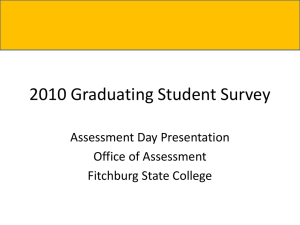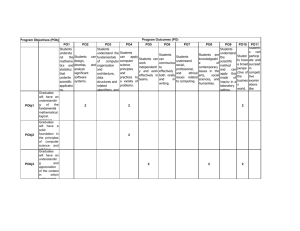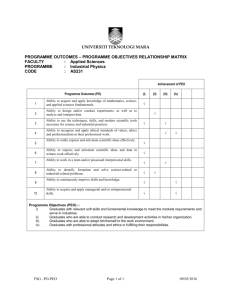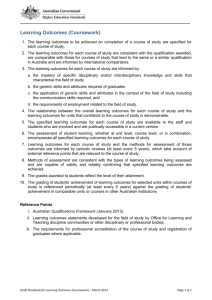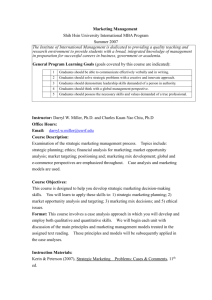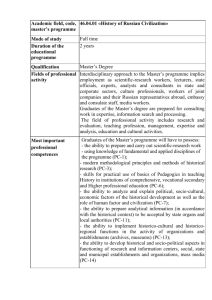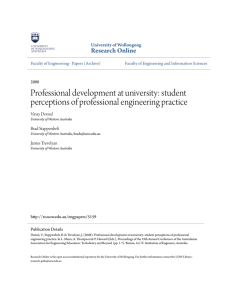Slide 1
advertisement
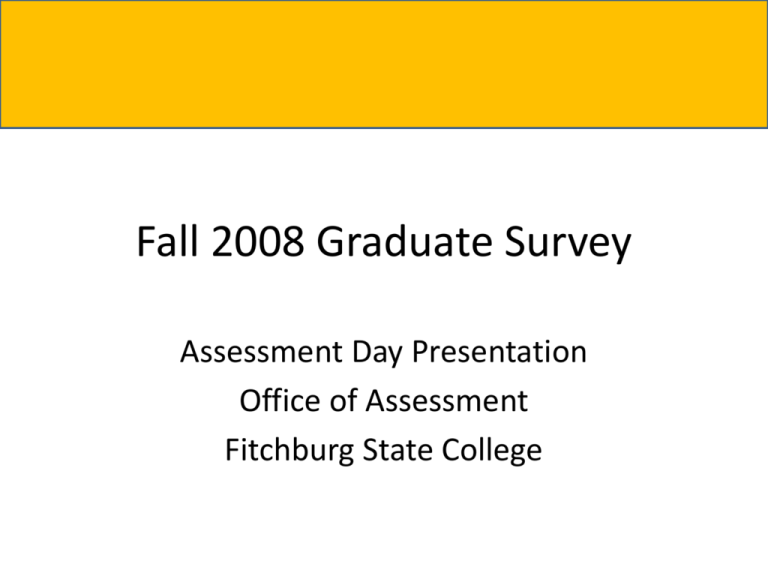
Fall 2008 Graduate Survey Assessment Day Presentation Office of Assessment Fitchburg State College History and methodology • • • • Model: UMASS-Dartmouth Inherently interesting target group May also stand in for alumni data Approach: Banner workflow generates email warning of survey, link then sent via either Tk20 (N = 40) or SelectSurvey (N = 610) Sample and return rate • About 650 graduation applicants for Fall 2008/ Winter 2009/Spring 2009 • Respondents = 240 (37%) • 202 usable records (102 GR, 100 UG) • Degree programs represented: – Bio, Business, Comm. Media, Computer Science, CJ, Econ., Education, English, EXSS, History, Human Services, ITEC, IDIS, Nursing, Political Science, Psychology, Sociology Topical sections • • • • • Classwork in major(s) Non-major classwork Library/media center Perceptions of learning Experiences with co-curriculum and student services • Future plans Results – Major studies • Baseline: Overall satisfaction with FSC. – 3.76 (5-point scale) UG, 4.10 GR, SDs < 1. • Eleven items – Availability of classes, frequency of course offerings, class size, quality of instruction, quality of texts, faculty availability, timeliness of coursework, learning facilities, major-related extra-curricular activities, relevance to career goals, level of challenge. • UG items of interest: class size (3.95), quality of instruction (3.89), frequency of course offerings (3.32) Results – Gen Ed • Same item set as major coursework. • Scores generally about 0.10 lower than corresponding items in the major. • UG items of interest: class size (3.69 vs. 3.95), faculty availability (3.67 vs. 3.86), match to career goals (3.39 vs. 3.66). Results - Library • Five items: resources, accessibility, staff quality, staff as teachers, library facilities. • Align with domains of the LibQual survey. • Response means: 3.81 – 4.07. Results – Learning Perceptions (I) • Ten items: written communication, oral communication, quantitative skills, dealing with diversity, conducting research, accessing information, using computer technology, critical reasoning, leadership, teamwork. • Five-point scale, “very weak” to “very strong.” Results – Learning Perceptions (II) • Perception of end state typically about 4.35 • Perception of change typically about 0.40. • Items of interest: – quantitative skills end state 4.11 – research skills change 0.72 – accessing information change 0.60. Results – Student Affairs • Laundry list of 30 student services and offices, plus a question on extra-curricular campus life overall. • Five point scale, mean 3.77. • Highly variable response numbers, little variation in results. • Outlier: parking (2.96) Typical Academic Affairs Questions • How many graduates go on to careers in their fields of study? • How long does it take graduates to get their careers launched? • How do graduates assess their earning power and how successful are they in their chosen fields? • How many graduates go on for more formal education? Results – Future Plans • Most (UG, 78%, GR 67%) look forward to fulltime employment in field of study. • 34% (UG) have full-time jobs or job offers, 9% have part-time jobs or job offers. • Mean reported UG starting salary in field of study: $32,700. Mean reported GR starting salary in field of study: $39,900. • Only 17% of UG grads anticipate graduate school in the next 12 months. Overall • Issues with the survey size and data collection process limit inputs. • Small Ns so far for most programs. • Some useful info for academic departments and College offices. Questions http://www.fsc.edu/assessment/Fall2008AlumniSurvey.cfm
